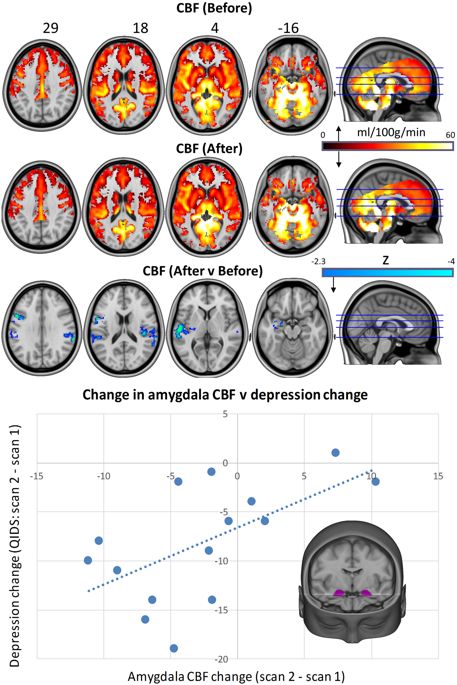Depression is on the rise. The World Health Organization reported more than 300 million people now living with depression. At an increase of more than 18% between 2005 and 2015. Depression is now the leading cause of disability worldwide.
Many doctors are turning to other treatments in hopes that depression would be significantly reduced.
A recent study conducted by Dr. Robin Carhart-Harris claims that Psilocybin had profound changes in the brains of depressed patients. The study was done on 19 patients. Each patient was given a single dose of psilocybin.
Dr. Robin Carhart-Harris reported significant changes in his patients brains. This magic mushroom was able to tap into the brains of patients and somehow reset the brain back to its core.
Psilocybin was shown to affect two areas of the brain. The amygdala and the default-mode network. It greatly reduced depressive emotions and their brain regions became more stable.

Patients reported feelings of liberation and had mystical experiences on mushrooms. Their symptoms of depression were greatly reduced or completely free from depression.
Another study was done on seven participants to test if their beliefs would be shifted. They took 10 mg and 25 mg of psilocybin, one week apart. They were asked simple questions of vacation preferences to difficult ones concerning political and social issues.
At the end of the study, psilocybin was proven to significantly shift responses in the participants brains. The volunteers reported a sense of connectedness to their environment and shifted toward a more libertarian mindset.
We are headed in the right direction. There’s no doubt that Psilocybin could be the next big thing in treating depression. If you’re experimenting with Psilocybin, consider purchasing a Ehrlich Reagent Testing Kit. Being confident in your substance will ensure a quality life-time experience.
Psilocybin has surely shed some light on greatly reducing depressive symptoms. However, this was only done on a small study. We need more research done to know if this treatment will have a significant change in treating depression long term.

Mail Us:
3157 Farnam Street
Suite 7104PMB7149
Omaha, NE 68131
Phone: (402) 235-9889
Email: contact(at)whatismolly.com